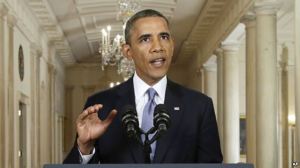The Criterion Collection has released a restored version of the 1943 British film, The Life and Death of Colonel Blimp, directed by Michael Powell and Emeric Pressberger. The title refers to a recurring character in the cartoons of David Low: an elderly Army officer who spouts reactionary nonsense. This film’s main character, Gen. Clive Wynne Candy (Roger Livesy), is clearly meant to be associated with Col. Blimp.
The Life and Death of Colonel Blimp tells, in flashback form, the life story of Gen. Clive Wynne Candy, from the Boer War to the beginning of the Second World War. In the film’s early scenes, Candy is on leave from the Boer War, where his courage has earned him a Victoria Cross. On his own initiative, Candy follows a German agent named Kaunitz to Berlin. Kaunitz has been spreading stories about British atrocities in the Boer War, inciting anti-British feeling among the Germans. Candy is determined to stop him. What makes this part of the film a bit icky is the fact that the British did commit atrocities in the Boer War. This is somewhat ameliorated by the fact that the film implies that Candy is a bit self-deluded, although this is never made explicitly clear.
However, in the next section of the film, detailing Candy’s experiences during World War I, we learn that his biggest fault is actually that he is too decent. He is reluctant to resort to the ruthless measures needed to defeat the Germans. This problem continues into the Second World War, when everyone around him becomes exasperated with Candy’s niceness. Even his Prussian friend, Theo (Anton Walbrook), lectures him about the need to get tough with the Germans.
At this point, I had to begin to question this film’s honesty. It seems to be saying that the main fault of the British is that they are too nice to their enemies. I suspect that many people in India and Africa and Ireland might beg to differ about this. (No doubt, Gandhi had the British in mind when he made his famous quip about Western Civilization being “a good idea.”) Early in the war, Noël Coward recorded a “satirical” song titled Don’t Let’s Be Beastly Towards the Germans, which also argues that the British are too nice to their foes. This idea of the British being “too nice” to their enemies strikes me as a back-handed form of self-flattery. (Sort of the way we’re often told that the U.S. is “generous” towards its enemies, even though it actually isn’t.)
What the film also seems to be saying is that Col. Blimp – and by extension all the “Blimps” in England – is not really a bad person after all. (The filmmakers apparently did this with David Low’s blessing.) This is in keeping with the “we’re all in this together” rhetoric of the British government during this period.
So, The Life and Death of Colonel Blimp is actually wartime propaganda, albeit of a subtle and sophisticated kind. What is odd is that this film was the subject of much right-wing criticism at the time of its release. (Churchill tried to prevent the film from being made.) One of their objections seemed to be that the film contains a sympathetic German character. In the U.S. at about this time, John Steinbeck’s The Moon is Down was harshly criticized for the same reason. War demands the dehumanization of the enemy.
This movie is gorgeously filmed. (The technicolor was lovingly restored for the DVD.) I was impressed by the high production values, considering that this was made during wartime rationing. The acting is superb. Livesy is impressive, convincingly aging over the course of the film. Deborah Kerr acts as the Eternal Feminine, playing three roles over the course of three generations. Her characters illustrate how women acquired greater personal freedom during this period.
One other thing that I found icky about this film is that the directors indicate the passage of time by filling up Candy’s house with the heads of animals that he killed while on hunting trips all over the world. At first, I thought this was meant to be satirical, but I gradually had the disturbing realization that this was something that the audience was supposed to find endearing about Candy. Ah, for the good old days when the British upper hunted species to the verge of extinction. Nostalgia can be a bitch sometimes.


